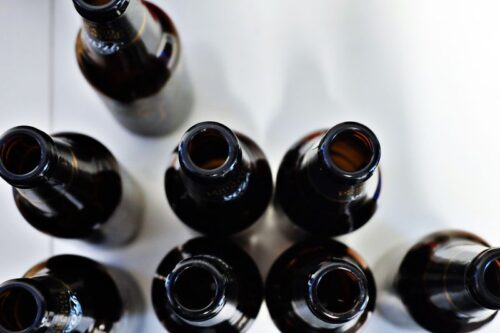
States define their drunk driving laws in different ways.
Some states refer to the charge of drunk driving as operating a vehicle while under the influence of drugs or alcohol (OWI), while others refer to it as driving under the influence of drugs or alcohol (DUI), driving while intoxicated (DWI), or operating a vehicle while impaired (OVI).
The alternate names for the same or similar misconduct often make people wonder about the difference between OWI or OVI vs. DUI.
Typically, there is no substantive difference between OVI and DUI; it simply depends on how the state’s statute labels the misconduct.
In Nebraska, the statute refers to the crime as driving under the influence. Thus, when clients ask us, What’s worse, DUI or OWI? We let them know that the name is the only difference.
Nebraska imposes severe penalties on those convicted of DUI. If you or a loved one are facing DUI charges in Nebraska, contact a criminal defense lawyer at Petersen Criminal Defense Law today.
Overview of DUI Laws in Nebraska
Nebraska’s DUI law states that it is unlawful for anyone to operate or physically control a motor vehicle:
- While under the influence of alcohol or any drug,
- When they have a concentration of eight-hundredths of one gram or more by weight of alcohol per one hundred milliliters of blood, or
- When they have a concentration of eight-hundredths of one gram or more by weight of alcohol per two hundred ten liters of breath.
The legal limit for drivers over 21 is 0.08%. Nebraska also prohibits keeping an open alcoholic beverage container in the passenger area of a vehicle while the vehicle is on any highway or in a public parking lot.
It is illegal to possess an open container and to drink from an open container while in your car.
Penalties for DUI in Nebraska
A first-time DUI conviction is considered a Class W misdemeanor and carries the potential of a jail sentence between 7 and 60 days, suspension of your driver’s license for up to 6 months, and a fine of up to $500. If your blood alcohol concentration (BAC) was .15% or higher, the license revocation period increases to one year.
A second DUI conviction carries the potential of between 30 days and 6 months in jail, suspension of your driver’s license for up to 18 months, and a fee of up to $500.
If your BAC was .15% or higher on the second conviction, you could lose your license for between 18 months and 15 years. Additionally, the possible jail sentence increases to between 90 and 365 days.
A third DUI conviction carries a possible jail sentence of 90 to 365 days, license revocation for 15 years, and a fine of up to $1,000.
Along with criminal penalties, the financial and personal ramifications of a DUI conviction can prevent you from getting your life back on track. A DUI conviction may force you to:
- Pay higher insurance rates,
- Participate in mandatory driving or substance abuse treatment courses,
- Pay license revocation fees, and
- Install and maintain an ignition interlock device to regain your driving privileges.
The best way to avoid a conviction altogether is by talking to a Nebraska DUI defense attorney about your case.
Potential Defenses to DUI Charges
There are a number of valid legal defenses that can defeat the necessary elements of the DUI charge and influence the prosecutor to reduce or dismiss your charges.
Examples of defenses to Nebraska DUI charges include:
- Someone else was driving the vehicle,
- Law enforcement lacked a valid reason to pull you over,
- Testing equipment malfunctioned,
- Improperly maintained breathalyzer machine, or
- Improperly administered breath or blood tests.
A DUI lawyer at Petersen Criminal Defense Law can review the details of your case and determine whether a legal defense applies.
What is an OWI Charge?
An OUI (Operating Under the Influence) refers to driving under the influence of alcohol, while an OWI (Operating While Intoxicated) includes any form of intoxication. An OWI charge can lead to jail time, fines, and license suspension.
Police can arrest someone for OWI even if they are impaired and sitting in a parked car without the engine running.
What’s the Difference Between OWI and DWI? Contact Petersen Criminal Defense Law to Find Out
Our team at Petersen Criminal Defense Law has been fighting for the rights of clients facing DUI charges since 1995. We are committed to advocating for our clients and defending their constitutional rights in court.
Attorney Tom Petersen has the knowledge, resources, and experience necessary to defend your case. Contact us today to discuss your case with a member of our team.


